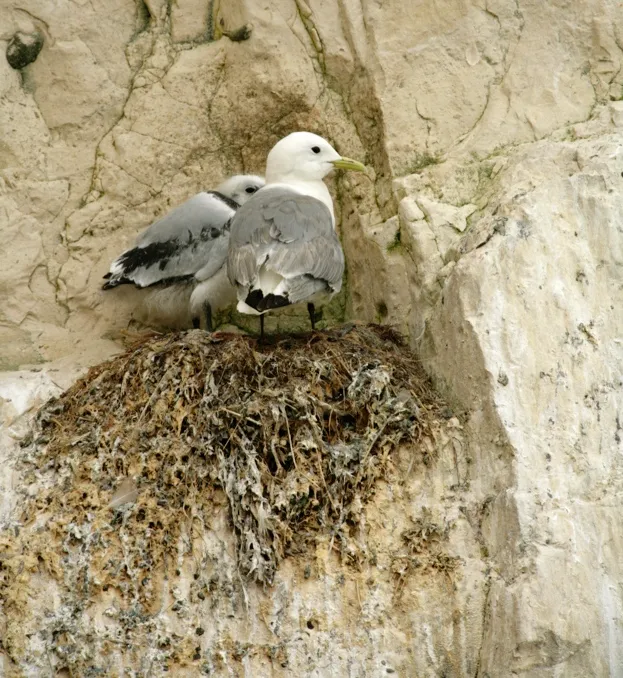The kittiwake has been elevated to an even greater level of conservation concern, after having plummeted in numbers in recent times.
It is estimated that kittiwakes have declined by 40 per cent since the 1970s, probably due to the impacts of climate change and overfishing.
Certain regions have been affected more than others – for example, the population of kittiwakes on St Kilda has declined by an estimated 96 per cent in the past 40 years.
“Some efforts are underway to protect important seabird foraging areas in international waters,” says Laura Bambini, Seabird Recovery Officer at RSPB Scotland, “But there is much more we could do around the UK to protect our internationally important and increasingly threatened populations.”

An adult kittiwake and its chick on a nest in Seaford, Sussex © Andy Hay / RSPB
Along with other seabirds, kittiwakes rely heavily on sandeels, especially during breeding season. Unfortunately, sandeels are also highly valued by commercial fisheries.
“If our internationally important populations of seabirds are going to cope with climate change,” says Dr Euan Dunn, a marine policy specialist at the RSPB, “then we need to make sure industrial fisheries are not adding to their problems."
Other species that are found in the UK and are being placed on the IUCN Red List include: Atlantic puffins, European turtle doves and long-tailed ducks.
